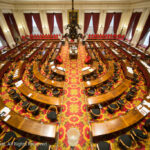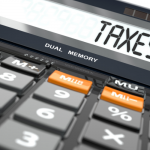Vermont Chamber Testifies to Support a Fair, Diverse, and Inclusive Business Landscape
Betsy Bishop, Vermont Chamber President, testified in the House General and Housing Committee in support of H. 363, an act relating to prohibiting discrimination based on certain hair types and styles. The proposed legislation not only upholds Vermont’s values of diversity, but also ensures that all individuals are treated with dignity and respect. Employers can maintain reasonable work uniform and grooming policies while taking a decisive stance against racial discrimination. Promoting diversity, equity, and inclusion in our workplaces is a moral obligation and a key driver of a thriving business environment.
Over the past three years, the Vermont Chamber has embarked on a journey to cultivate a culture of diversity, equity, and inclusion both internally and externally. Our commitment includes internal organizational efforts, such as setting goals, action plans, and board diversity, as well as external engagement through relationship-building and the support of initiatives like the Declaration of Inclusion.






